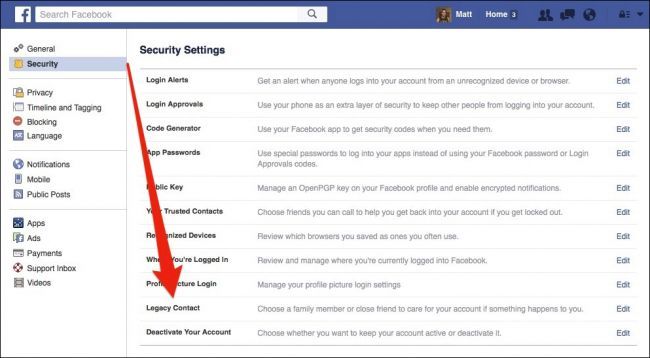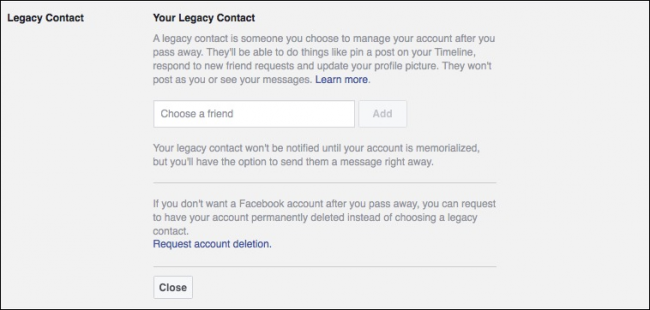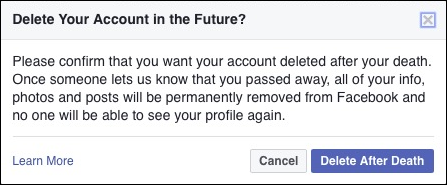Many questions come about when one ponders their final days. Where will we go? Is there really an afterlife? What will happen to my Facebook account?
Okay, so that last one's probably low on the priority list, but it is something to think about.
It's not a pleasant issue to deal with, but it's necessary. When you die, your online legacy lives on. The only question is: is that how you really want to be remembered? Fortunately, Facebook gives you two options for such an eventuality. You can either choose to delete your account when you die, or have it memorialized.
Memorializing your Facebook Account
When you memorialize your account, you leave someone you trust in charge of making sure that your account is curated after you're gone.
Memorializing an account allows friends and family to get together and share memories of you, and has some key features.
- You name will have the word "Remembering" placed next to it.
- If your privacy settings permit it, friends will be able to share memories on your Timeline.
- Any content you previously shared will remain visible to the intended audience.
- Profiles that are memorialized won't appear publicly such as in birthday reminders, advertisements, People You May Know suggestions.
- Your account will be basically locked, meaning no one can log into it.
- If you were the sole administrator of a page, it will be removed if Facebook receives a valid request.
In order to set your account so that it can be memorialized after you pass, you need to appoint a legacy contact. This would be any friend or family member who you trust to tend to your wishes.
To set a legacy contact, first open the Settings and click on "Security" then "Legacy Contact".
Now, you simply need to appoint a friend to serve as your legacy contact.
You legacy contact won't gain these new powers until after you account is officially memorialized, which someone must request for you after you have died.
Facebook will require your name, the date you died, and optionally, some kind of proof such as link to obituary or a copy of your death certificate. Once they have that and your account is memorialized, your legacy account will be informed that they can tend to your account.
Deleting Your Facebook Account After You Die
The simpler option is to have your account deleted upon your demise. This isn't the same as deactivating it. When deleted, everything goes away.
To do this, open the Security settings, click on "Legacy Contact" and this time click "Request account deletion".
Should you change your mind, you can elect to keep your Facebook intact.
After you have passed away, someone will need to notify Facebook, which they can do using a special request form. It's best that you appoint someone, regardless of whether they're your legacy contact, to take care of this matter. Be sure to communicate to them your wishes for how your Facebook account should be handled. Regardless, if you desire deletion, it should be taken care of once Facebook is aware you're gone.
This is obviously an unpleasant topic to have to discuss, but it's an important one. Many folks may figure they've got things covered when it comes to their estate, such as how your assets will be divided or to whom will assume control over your affairs, but few may consider what happens to your online afterlife.
Thus, memorializing or deleting your Facebook account will assure it is handled according to your wishes instead of leaving it to the passage of time.





